An appeal for unity in Indigenous voice to parliament debate: my speech for Anthony Albanese
With the voice in serious strife, I thought Anthony Albanese might find this useful. Feel free to use it, Prime Minister, I won’t tell anyone.
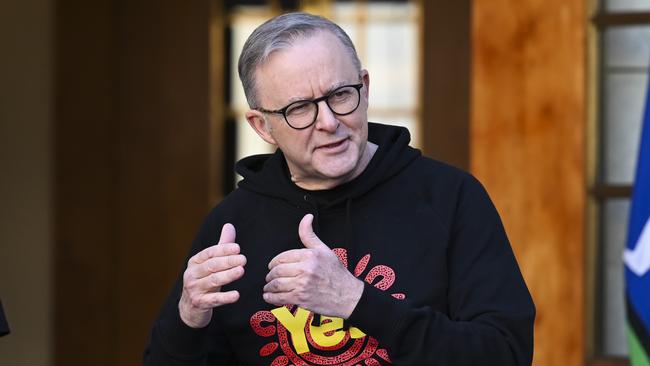
-
Seldom has our nation faced such a critical moment in political choices. A time of consternation, certainly, but one of immense opportunity to complete the Constitution and take a giant step towards reconciliation.
The huge chasm between the life expectancy, education, health and employment outcomes of Indigenous Australians compared with non-Indigenous Australians remains this nation’s greatest shame, and deepest challenge. Right now, we are also preoccupied with other pressing dilemmas – cost-of-living pressures, clean-energy transition, budget repair and strategic security threats – but we must find time to consider a once-in-a-generation opportunity to welcome Indigenous Australians into our Constitution in the practical way proposed.
Across the next four weeks, let us seize the chance to discuss, debate and decide. This question is important for us all – for some it is a journey that has consumed their whole lives – and what we do now will speak to the history of this nation for decades, and even centuries to come.
Do we include Indigenous Australians in our Constitution, and do it in a way that can deliver practical outcomes? Or do we want to reject this hand of friendship, focus on contrived division, and insist on a hard-hearted embrace of the status quo?
So far this historic opportunity to come together has seen us drawn apart, near enough down the middle, near enough coast to coast, in a way that is dispiriting to all. If our nation is to achieve reconciliation, and if we as a people are to work towards it, then my job is not to apportion blame or engage in partisan bickering. But I must call out falsehoods and ask voters to focus on the facts.
Reconciliation is about compromise and acceptance and must be founded on honesty. So let me be first to raise my hand and accept my share of responsibility for this fractious situation.
A reform as historic as this, one that speaks to the mechanics and the soul of the nation, ideally needs bipartisan support. And I failed to achieve that outcome.
Now I might argue that Peter Dutton and the Coalition never offered a compromise position to deliver their support, or I could say their mischief-making indicated they never seriously contemplated supporting the voice, and I might be right. But the fact remains that I might have done more, and to be left with a partisan divide on a question like this is obviously a failure for which I must share some of the blame.
Yet this is no reason to retreat; in fact, it provides stronger motivation to make good. Success remains imperative, but it makes the campaigning more tumultuous and difficult.
One flaw of our Yes campaign has been to assume voters knew the long genesis of the voice. For many it arose quite suddenly out of the political process, a request foisted upon them with little preceding rationale.
It is important to recount that efforts and experiments at delivering representation for Indigenous people go back almost a century to Yorta Yorta leader William Cooper. Along the way significant promises have been made around recognition, representation and reconciliation.
In our bicentennial year, 35 years ago, Bob Hawke attended the Barunga Festival in the Northern Territory and promised: “That there shall be a treaty negotiated between the Aboriginal people and the government on behalf of all the people of Australia.”
In 2007 John Howard said, “if re-elected I will put to the Australian people within 18 months a referendum to formally recognise Indigenous Australians in our Constitution.”
There have been grand experiments such as the Aboriginal and Torres Strait Islander Commission, which fatally mixed representation with funding and service delivery. And we have seen recent governments, Labor and Liberal, hand-pick Indigenous advisory committees.
The voice we have before us grew from Howard’s commitment and more than 15 years of parliamentary inquiries, referendum council deliberations, and widespread Indigenous consultation culminating at Uluru in 2017. It is a proposal to deliver recognition that is not merely symbolic but meaningful and practical.
It minimises the constitutional risk of unintended consequences, while granting Indigenous Australians the agency of suggesting how government might deal with their issues. Importantly, this brings with it the reciprocal responsibility of sharing ownership of the outcomes.
Since 1967 the federal government has had the power to make special laws for Indigenous people, and this constitutional change will mean that when exercising that power, it will need to at least listen to Indigenous people. That is all – the voice provides a fair go.
While I accept bipartisanship was the ideal path forward – and I acknowledge the welcome support of leading Coalition figures including Tasmanian Premier Jeremy Rockliff, former opposition Indigenous Australians spokesman Julian Leeser, former foreign minister Julie Bishop, former West Australian premier Colin Barnett and the first Indigenous person to serve as federal Indigenous Australians minister, Ken Wyatt – I must call out falsehoods presented by our political opponents. This debate should be factual, not fearful; it should be about policy not personalities.
Just because there are plausible arguments to vote No does not mean that some elements of racism and abuse have not tainted this debate, leading to vile abuse especially of Indigenous advocates on both sides. This is an ugly reality.
Marcia Langton is a great Australian who has invested her life’s work in achieving structural change and personal advancement for Indigenous Australians. The same can be said for senator Jacinta Nampijinpa Price.
Langton and Price’s frustrations are as understandable as any scars from a lifetime of exposure to discrimination and disadvantage. But Langton’s broad slur against those advocating the No case is not warranted – we cannot presume to judge the motivations of others.
My task is not to rebuke people over their voting intention but to encourage them towards a Yes vote. I want them to know the so-called risks of voting Yes are grossly overstated and that a No vote turns our backs on a historic opportunity.
But if I can reject the inference of Langton’s language, then I can call out the personalised slights and falsehoods perpetrated by Dutton and the Coalition. The Opposition Leader has highlighted the remarks of Langton and union activist Thomas Mayo, invoking references to division and communism, and claiming “these people are the ones who would have all the power” under the voice.
This is fearmongering pure and simple, first because the voice will not wield power – it is advisory only – and second because grassroots Indigenous people will choose their own representatives, and demonising individuals as potential choices is baseless and nasty. This has become a central tactic of the No case – tearing down voice proponents to undermine the proposal. It is brutal, hyper-partisan politics and I think it underestimates the intelligence and generosity of the Australian public.
Further, in her National Press Club speech this week, Price said it was a lie to say the voice would be advisory. This is a blatant falsehood, disproven by the very wording of the proposed constitutional change, and the considered advice of learned legal experts including former chief justices of the High Court.
That the Coalition would spread such a falsehood, clearly designed to enable a misleading fear campaign that pretends the voice can usurp the will of parliament and government, is a low point in public debate. Price and Dutton must correct this fundamental falsehood if they are to claim good faith in this debate.
The prominent slogan of the voice opponents – “If you don’t know, vote No” – insults voters. Australians are smart enough to know that if they do not know they should find out.
And I want to say that while the most critical detail is available – the exact wording to be added to the Constitution – I will be doing more to map out the shape of a voice that my government would seek to legislate if the referendum passes.
The central details have long been available through the design principles released in April and readily available online, and the most important point is that parliaments will always have the power to reform, adjust and re-design the voice.
But I will make another speech in two days to provide more details on what we would take to parliament. Importantly, I would invite the Coalition to be involved in a committee process to design that legislation, which would be based largely on the work they commissioned in government under professors Langton and Tom Calma. It is my view that a parliamentary committee dominated by Labor and Coalition members would provide oversight and engagement with a voice once it is operational, so that we entrench the best opportunity for bipartisan approaches.
We need to remind ourselves that there is far more common ground in this debate than disagreement. Both Labor and the Coalition want to close the gap and work towards reconciliation.
Both Labor and the Coalition are committed to constitutional recognition. Both Labor and the Coalition are committed to legislating an Indigenous voice.
The only difference is that the referendum proponents want a voice mandated by the Constitution, and the No advocates want it legislated under existing provisions and not mandated.
On this central point, my case is clear. We want the voice mandated in the Constitution because it delivers recognition, and because it provides an enduring commitment to Indigenous Australians that their voice will always be heard and protected from summary dismissal.
None of this can fairly be labelled as racially divisive. If the Coalition truly believed a voice was racially divisive, they would not be proposing to legislate one.
Even prominent No campaigner Warren Mundine, who chaired Tony Abbott’s Indigenous advisory body, endorsed the voice model in 2019.
“The model that I’m looking at is, that will come from the people on the ground, the traditional owners that can speak for country,” he told Sky News. “It will move up into the national body and the national body then can have these conversations in regard to this.”
Mundine was right. That is the basis of a good model, the one we propose now. Clearly, he has subsequently changed his position, but that does not alter the merit of what he said.
Victoria and South Australia are already establishing voices, and no doubt other states will follow, so if this referendum fails we will end up with local and state-based voices with no structure to speak to the national government. This would be unsatisfactory, to say the least.
I ask Australians to think about how the apology brought our nation together and highlighted not guilt but empathy. Indigenous and non-Indigenous Australians love this country equally, and share these shores, and it is within these shores that our futures are forever entwined.
A No vote will repudiate Indigenous aspiration. A vote for Yes will ensure we forever share our endeavours. It will finally recognise Indigenous Australians in our founding document in a practical way. It means we will listen to each other; it will deliver a fair go.


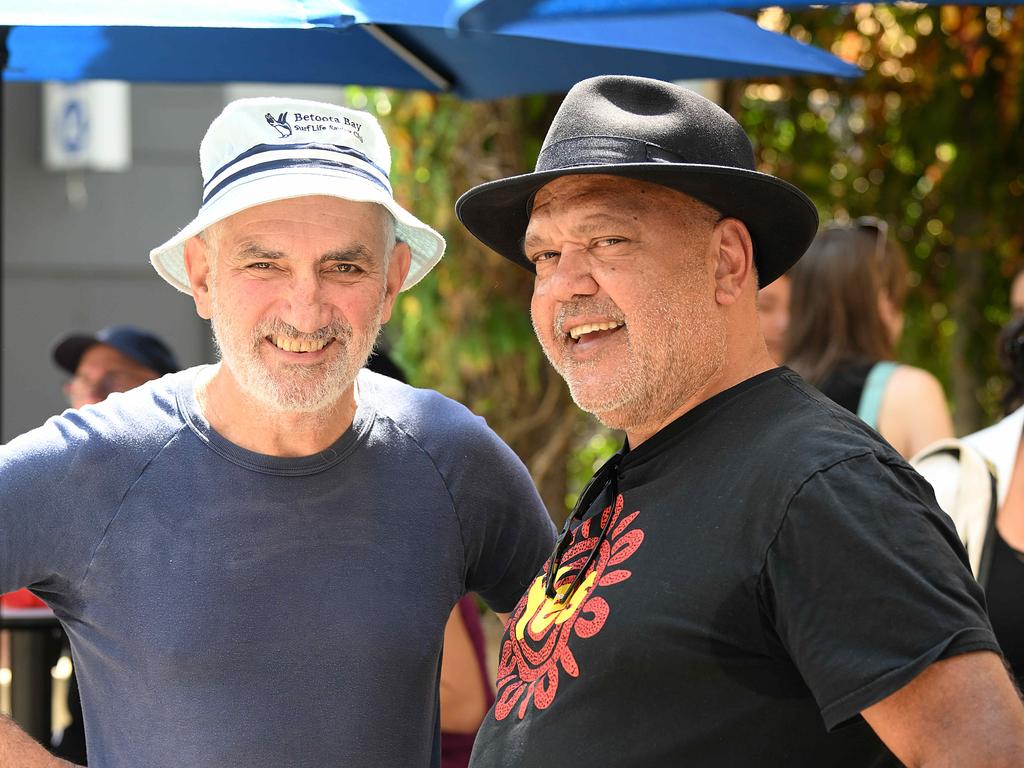
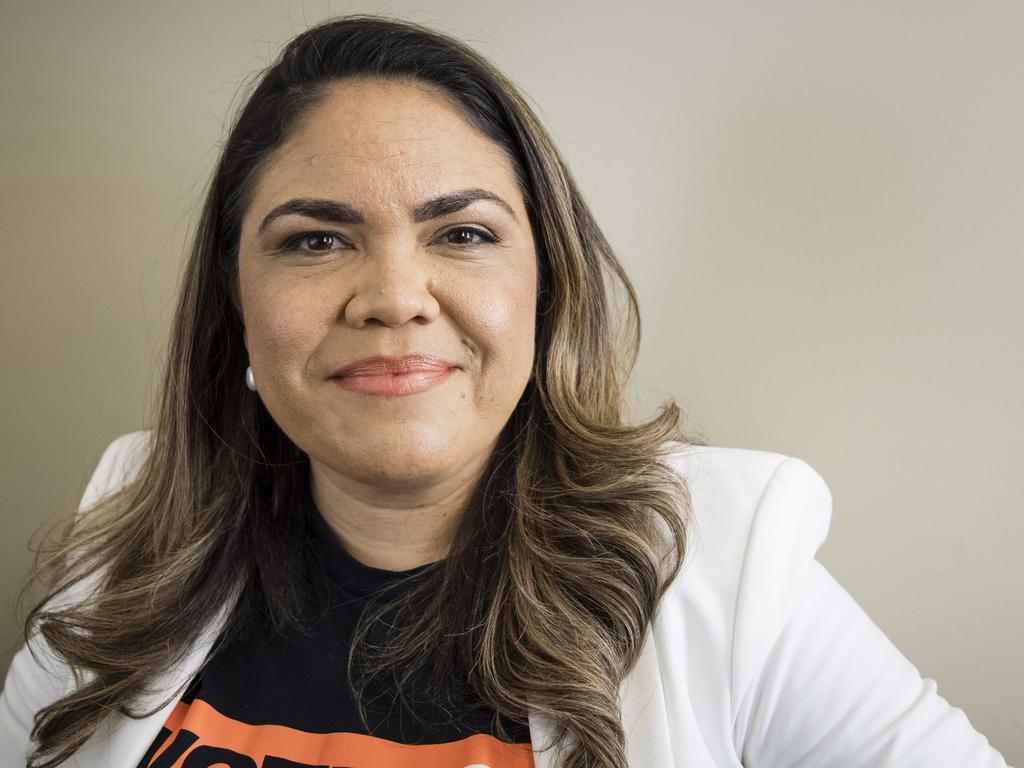
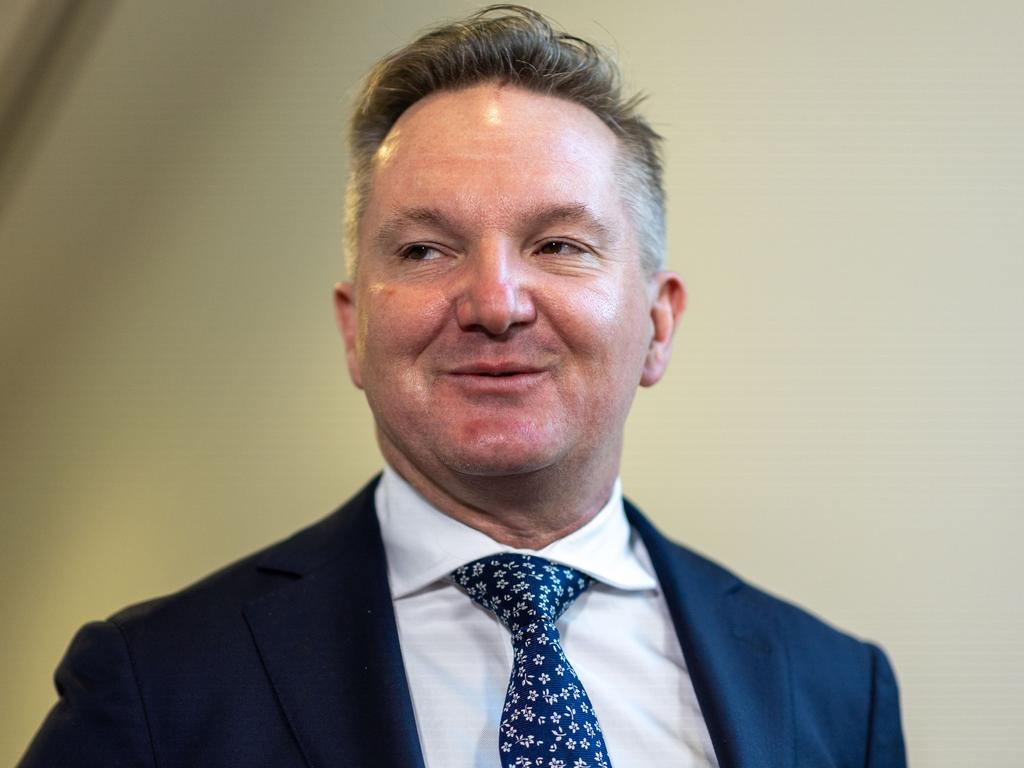
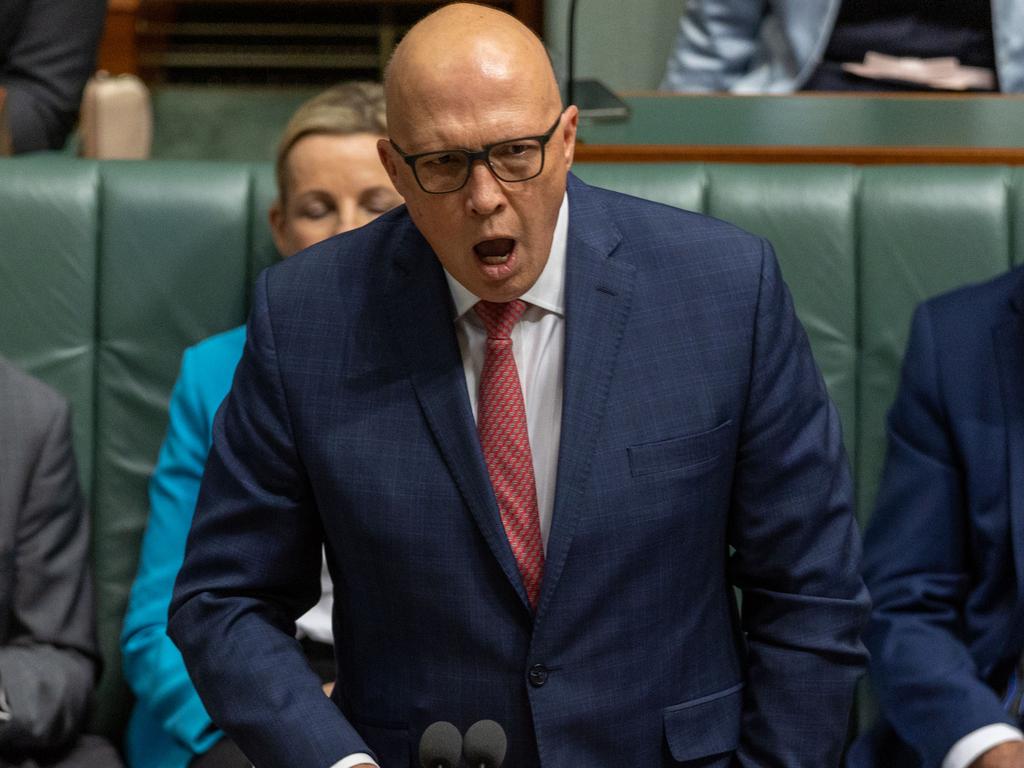


Over the past 20 years or so I have written or co-written some speeches, mainly for Liberal politicians. With the voice referendum in serious strife, partly because of the predictable mistake of running emotive left-of-centre lines instead of diligent right-of-centre arguments, I thought it might be useful to pen a speech for Anthony Albanese (Feel free to use it, Prime Minister, I won’t tell anyone where it came from).